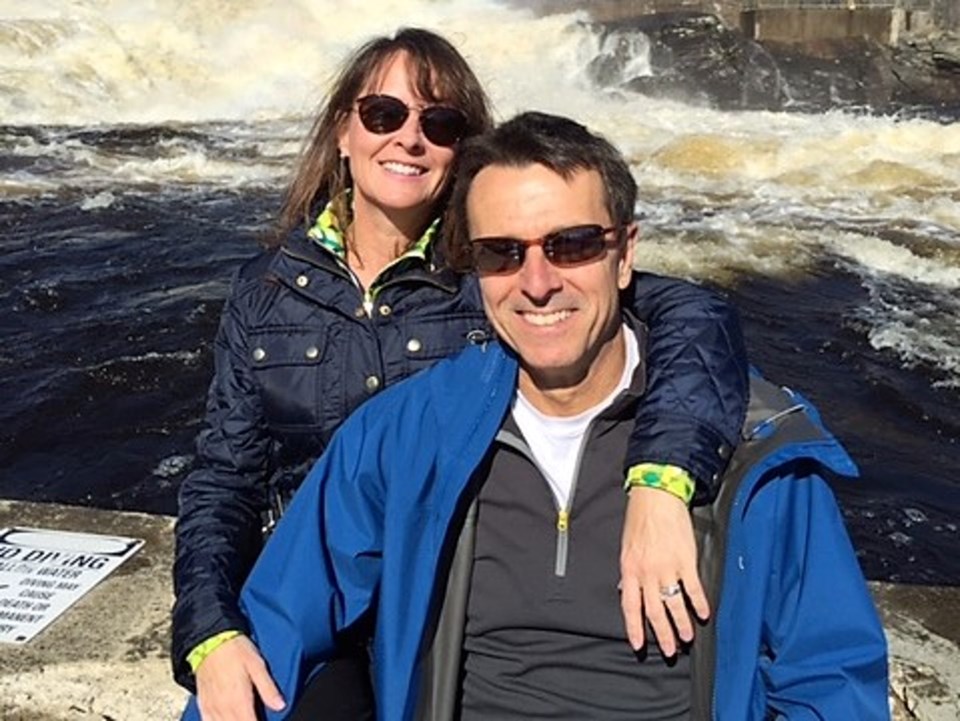FYI. Survivors don't need inspiration, they need EXACT 100% RECOVERY PROTOCOLS. This just once again dumps all responsibility of recovery on the survivor rather than the doctor where it belongs.
Collingwood producer hopes to provide ‘inspiration’ through short film release

Stroke recovery turned into a stroke of genius for a Collingwood woman.
Alicia Tyson has released her short film Power of Sport this week, which chronicles her husband Paul Bak’s work recovering from a stroke he suffered in 2016. The film follows three stroke survivors including Bak, who all went through their own rehabilitation journey at West Park Healthcare Centre in Toronto to get back to doing the sports they loved.
A first-time film producer, Tyson starting taking video and photos of Bak’s recovery to show him the progress he was making in his recovery, but the idea for the film came from the benefits she saw through sharing that occurred during survivor support group meetings at West Park as part of treatment.
“It gave them hope and inspiration. I thought it was a great story, and maybe we could share these stories to provide others with hope and inspiration,” said Tyson.
In 2016, Bak suffered a stroke. Prior to his stroke, Bak and Tyson were weekenders in Collingwood and had made plans to move.
“He had a massive stroke. It was an unexpected thing,” said Tyson. “I didn’t see it coming. It was quite a shock.”
“Every stroke is different, and so is every recovery,” she said, adding that Bak had to relearn how to walk and swallow. “They asked him what he wanted to get back to (doing). He had some goals like driving and getting back to tennis and golf.”
As part of Bak’s recovery after his release from hospital, he went to stroke rehabilitation which included support group meetings with other stroke survivors, where they would share their stories.
“In those meetings, Paul would get excited talking with other stroke patients who were further ahead than him,” said Tyson.
Two of those patients – Sean Russell and Pino Galati – are also featured in the short film. Tyson said she noticed that the conversations helped those going through the rehab motivate each other.
When Tyson noticed Bak get frustrated when he didn’t see the progress he was making, Tyson had the idea to start filming his physical therapy. From that, came the idea for the short film.
“I started taking tons of video and photos so I could show him his recovery and the little and big strides he was making,” said Tyson. “It was inspiring to him and it made him feel like he was making progress.”
Tyson hopes many people view the film to gain an understanding of how sports, physical therapy and peer support can really make a difference in the recovery from a stroke. Tyson herself has made a career around physical health and wellness and how physical activity can prevent illness, but after her husband’s stroke, she found herself seeing more of the benefits physical activity can have on recovery after a major health event.
After making the move to Collingwood in September 2016, Tyson also credits the South Georgian Bay’s multiple amenities for helping Bak through his recovery. She says many of the locations featured in the film that show Bak outdoors are in or near Collingwood, including the Georgian Trails, Sunset Point Park, and Blue Mountain ski hills.
“Also, the people who are family members and friends and the general public (can see) the value of physical activity and how it can bring so much to your life,” she said.
No comments:
Post a Comment